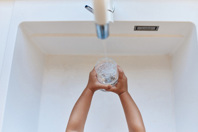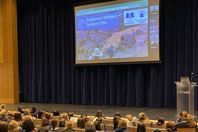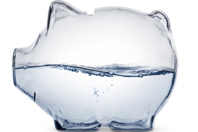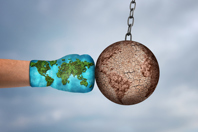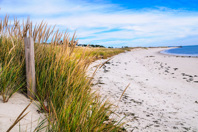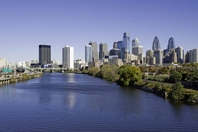CONSUMER OUTREACH RESOURCES
-
Water specialists do their best to ensure safe drinking water for people nationwide. Despite their diligence in monitoring and treating wastewater at municipal facilities, some households are still susceptible to contamination. Encouraging homeowners to regularly test their own water during the year will help pinpoint missed hazards and provide an additional safeguard.
-
Engineering Tomorrow, a national education nonprofit dedicated to fostering a more diverse and expansive engineering workforce, recently engaged thousands of students across the country in an interactive lab on wastewater treatment and related careers in partnership with Engineers Without Borders USA.
-
Water scarcity affects regions around the globe, prompting a need for innovative conservation methods in residential settings. To this end, modern homes increasingly integrate smart technologies and thoughtfully water-efficient designs to reduce consumption without sacrificing comfort or functionality.
-
Water utilities are facing an important dilemma. By striving to make water invisible so that customers can use our services without disruption, water exists in the background of daily life. Invisible water, however, fosters a low level of consumer involvement and marketability. As a result, tap water is severely undervalued based on its price, availability, and delivery complexity.
-
Though treatment processes can guarantee that water has been completely purified — to the point where it is just as safe as regular tap water — people still feel it could cause them harm. We have to remember, however, that people's beliefs can change.
-
Can we use tried-and-tested approaches to capture people’s attention and change their conservation behaviors?
-
Public confidence can be hard to win back, emphasizing the need for secure systems as utilities grow more reliant on digital technologies.
-
The Biden Administration’s proposed Lead and Copper Rule Improvements (LCRI) won’t be finalized until late 2024, yet it is already causing a stir among water utilities. Among the many changes and additions, the LCRI as it stood at the start of the comment period will lower the action level to 10 ppb for lead and will mandate that all lead service lines (LSLs) be located and replaced within 10 years. The expectation is that many thousands of water utilities are going to find themselves pressured to take action or step up existing actions.
-
Coasts and estuaries are highly valued and provide important resources for communities. These environments provide ecosystem services including food, recreational space, protection from storms, and more. In New England, coastal water quality is particularly important for local communities and economies, with beaches and aquatic environments drawing in millions of visitors each year.
-
Six years ago, to great fanfare, Philadelphia Water launched a new approach to bill assistance for low-income water and sewer customers: the Tiered Assistance Program (TAP). Casually dubbed "income-based rates," TAP held out the promise of achieving true "affordability" by whatever standard policymakers set. Philadelphia TAP has garnered widespread media attention and has received tacit endorsements from some academic researchers and institutions. With more than five full years in the rear-view mirror, it's time to ask: how well has Philadelphia TAP worked?

